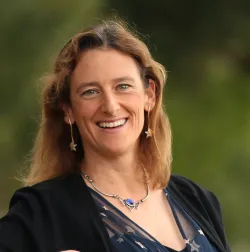
Mount Stromlo 100th - The Dark Side of the Universe
What is the dark energy that’s accelerating the Universe? Discovered a quarter of a century ago, it’s a feature of our Universe that appears to have some sort of anti-gravity property. Now astronomers have zeroed in on how it’s changed over the last 10 billion years. Using thousands of supernovae and millions of galaxies they’ve mapped the cosmos and discovered to their surprise that dark energy may be changing with time. This talk will describe the many varied ways in which astronomers are measuring the dark side of the Universe, and get you up to date on the recent exciting results.
Speakers
Event series
Content navigation
RegisterDescription
What is the dark energy that’s accelerating the Universe? Discovered a quarter of a century ago, it’s a feature of our Universe that appears to have some sort of anti-gravity property. Now astronomers have zeroed in on how it’s changed over the last 10 billion years. Using thousands of supernovae and millions of galaxies they’ve mapped the cosmos and discovered to their surprise that dark energy may be changing with time. This talk will describe the many varied ways in which astronomers are measuring the dark side of the Universe, and get you up to date on the recent exciting results.
Professor Tamara Davis

Professor Tamara Davis is an astrophysicist who studies the elusive "dark energy" that's accelerating the universe. She did her PhD at the University of New South Wales on theoretical cosmology and black holes, then worked on supernova cosmology in two postdoctoral fellowships, the first at the Australian National University (collaborating with Lawrence Berkeley Laboratory) and the second at the University of Copenhagen, before moving to Queensland to join the WiggleZ Dark Energy Survey team working on mapping the galaxies in the universe. She led the Dark Theme within the Australian Research Council Centre of Excellence for All-sky Astrophysics, is now leading the OzDES survey -- working with the international Dark Energy Survey, and working with working with the Dark Energy Spectroscopic Instrument project.
Her accolades include the Astronomical Society of Australia's Louise Webster Medal for early career research impact, the L'Oréal Women in Science Fellowship for Australia, the Australian Institute of Physics Women in Physics Lectureship, the Australian Academy of Science's Nancy Millis Medal for outstanding female leadership in science, an Australian Research Council Laureate Fellowship, the Astronomical Society of Australia's Ellery Lectureship, and a Member of the Order of Australia (AM).
Location
Research School of Physics Auditorium
60 Mills Road
Acton, ACT 2601
